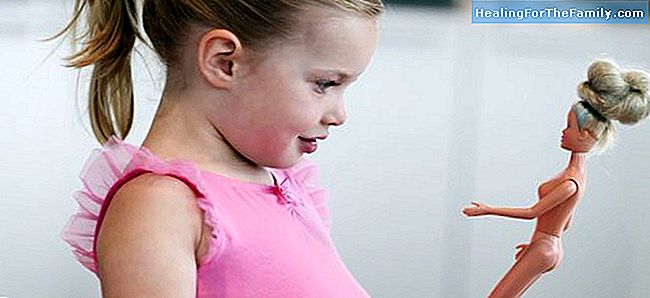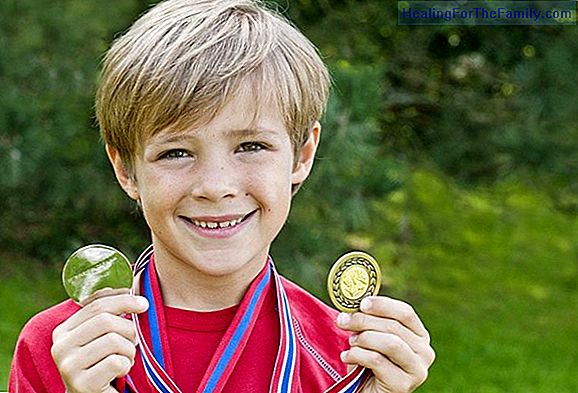What is anorexia and how does it affect children?
If there is anything that frightens any parent, it is that your child has a health problem. The problem also comes when children develop diseases that we did not expect could occur in childhood because they are considered adult diseases. One of those problems is anorexia , an eating disorder that ca
If there is anything that frightens any parent, it is that your child has a health problem. The problem also comes when children develop diseases that we did not expect could occur in childhood because they are considered adult diseases. One of those problems is anorexia, an eating disorder that can also happen to the little ones.
What is anorexia?

Anorexia is a disorder that has to do with food and is generated when the person who suffers constantly refuses to eat any food. This disorder of eating behavior can develop when the sufferer does not want to eat any type of food, or expels it through vomiting (in its bulimic phase), which leads to a significant loss of weight. Generally speaking, anorexia is usually motivated by an obsession of the person for the
physical aspect , which due to external causes, has the perception of a body that is not perfect, which can motivate him to want to lose a lot of weight. Your brain comes to perceive a body different from the real one. The person with anorexia looks fat, while the rest perceive him as thin. The need not to get fat makes this disease an obsession.The lack of self-esteem, both physical and psychological can trigger this problem by seeing a body more slender and thin. Despite the general belief, it affects not only young women, but also men, pregnant women or even boys and girls.
The symptoms of anorexia in children
For an adult,
anorexia is a very serious disease, but for a child it is a devastating disorder. In addition to the fact that starvation is very dangerous because children are constantly growing, and their organs are forming, the psychological consequences of suffering from anorexia can be very hard in childhood. The symptoms of anorexia in children are easily recognizable:
-
Alteration in eating behavior : When children stop eating in a strange way for no apparent reason, and not because they do not like food, it is necessary to be attentive to the true motive of inappetence. When a child begins to refuse food in a systematic way we could be facing the disorder of anorexia nervosa.-
Lack of appetite : In this case, children may suffer from a lack of appetite not caused by wanting to look better physically, but because they may have a disease that causes them not to feel like eating and that also entails a picture of anorexia.-
Anxiety and obsessive-compulsive tendencies: People suffering from anorexia nervosa can develop anxiety behaviors and obsessive-compulsive tendencies, something that can also affect children. -Distorted vision of the figure
: Unfortunately, many children have fun insulting others because of their physique, and in the playground there can be unpleasant situations of children who mess with others because of their weight. This can cause anorexia nervosa, and a distortion of the body's own vision, which can be a clear symptom of the development of the disease. -Obsession for counting calories
: If there is something that characterizes people with anorexia is that need to know how many calories they eat. If the child begins to reject foods that he loved, such as chocolate, bread, sausage, sweets ... it may be a sign that he begins to become obsessed with those foods that 'get fat'. -Change in their wardrobe:
Children suffering from anorexia reject their body, as they look 'fat'. Therefore, they also try to cover it with more loose garments. Children suffering from this disease prefer wide clothes. - Constant mood swings:
The disease of anorexia makes these children more irritable and tend to be constantly angry or depressed. The cumpable is the nervous system, altered by the disease and anxiety that this obsession produces. If there is any suspicion that your child may suffer from this disease, do not hesitate to consult the pediatrician immediately. The speed with which it acts is decisive to be able to leave it without leaving sequels.












